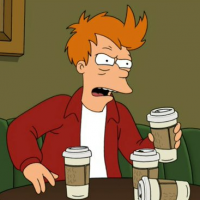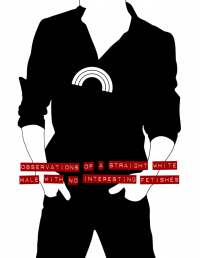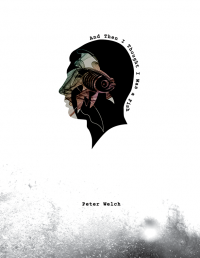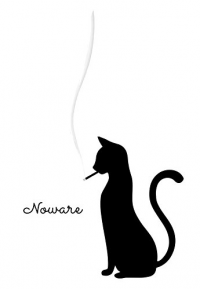Peter Hunt Welch Interview Published on: 27, Aug 2021
 What were you like as a child? Who was your role model growing up?
What were you like as a child? Who was your role model growing up?
I was a bully at a few Quaker elementary schools until one of my teachers had a meeting with my mom where my mom quotes her as saying, "Your kid is an asshole." After that I became fairly shy and stayed shy. We moved around a lot, so I had to balance this with needing to meet new people every two years, and since I spent most of my time homeschooled this required a certain outgoingness. It went okay until we landed in Maine in a town with maybe five kids my age. I never had role models; I had nice adults, but I never aspired to be anything in particular except when I was five and wanted to be an elephant.
As a teenager, what were you obsessed with?Loneliness? My teen years were riddled with some cold as death winters in the aforementioned Maine outback. I read, I stared at the walls, I worked on a fantasy evolutionary line to explain different species in Dungeons & Dragons. There's also a minimum amount of outdoors know-how required to live in a place where being outside for 30 minutes in winter can kill you, so I learned how to navigate woods, some minimal car maintenance, starting fires, fishing, etc. The ability to be obsessed with something was tempered by surviving the environment and my own depression. Probably the biggest problem was I had terrifying nightmares on a regular basis between the ages of 7 and 16, so I was afraid to sleep for 9 years.
Were you an avid reader as a child? Do you still read books?Oh absolutely. I've read between 50-plus books every year since I was 13. Except for 2019. In 2019 I read the Wheel of Time start to finish. That was a mistake.
What fears did you have while publishing your first novel?By my first novel, I had two books out, and had been briefly famous because of my essay "Programming Sucks." At that point, I'd tasted fame and hated it, and achieved everything I thought I'd ever achieve except passive income, so now all I want is to finish my stories and tinker with things. So, basically, none.
How did you discover that you wanted to be a writer?I have no idea. I can't remember not writing. I think I headed towards writing because I find it more challenging than anything else. I find things boring as soon as I understand them, but there's no way to fully understand writing. I'm not setting it apart from other art forms; they all have some peculiar flavor of infinite complexity in the relationships among intention and tools and audience. Writing is the one I do. And I'm terrible at drawing.
What challenges did you face while writing your memoir, And Then I Thought I was a Fish?Mostly that I had panic attacks if I worked on it for too long. A lot of people gloss over the point that the path to insanity, for me, was ultimately a gradual perversion of normal thought patterns, and it is entirely possible to find my way back to that place with no drugs at all.
Audio book vs e-book vs printed book, which one do you prefer and why?I was a print book enthusiast until I realized carrying 20 books home from The Strand was getting unsustainable, so I picked up a Kindle. It's not a book, but I actually like not knowing how much of a book is left, and it can be a more immersive experience to have only words in front of you in the least distracting font of your choice. Also I read a lot on vacations, and it's simpler to pack a Kindle than five books. Audiobooks for driving, naturally.
What is the significance of the title of your novel, Noware?My working title was actually "The Ersatz Syzygy" until my beret was confiscated and I had emergency surgery to get the rod out of my ass. The book is about looking for meaning while feeling adrift and lost, and doing it ineptly. Spelling nowhere wrong seemed like a nice summary of that. It's also a slight play on software or hardware; i.e. tools to do something. In this case, the void is a motivating tool to find an option besides oblivion, or some kind of meaning. The fundamental options turn out to be something utterly incomprehensible, random chance, and a murderous demon who is at least comprehensible. Which was kind of the whole point. I think of these as the only coping mechanisms for the void, and even though I'm the first to use irony to combat existential dread, I don't think it was wrong to characterize it as a murderous demon. Should probably get a follow up appointment for that rod.
How much did you research while writing your novel, The City Commute: The Art & Science of Life's Most Tedious Journey?The City Commute is almost entirely opinion and personal experience dressed in Old Guard Philosophy language, so I only did spot checks to make sure I wasn't saying anything factually or provably wrong. That said, I do think the book constitutes an applicable philosophy, and most of its points derive logically from the initial principles.
What do you consider to be your best accomplishment?Every cat I've ever raised has been affectionate, social, healthy, and smart. Except Olive. Olive was dumb as bricks, but also the most affectionate living thing I've ever heard of, so it balanced out.
Can you make a story out of any topic someone throws at you?Probably. My writing practice in my twenties was to pick two things at random out of an encyclopedia and link them narratively. Do I have the emotional or creative energy to do it? Doubtful.
If you could improve one thing about your writing, what would it be and why?Currently I'm trying to use the word "just" less. This is cover for a broader crisis; I've had a handful of reliable voices in my work over the years, and I don't know if I like them, or how much I should let them bleed into each other, or if I want to push in a more journalistic or literary or humorous direction, or find something in between. I don't think I'm the only one going through this, as there's a generational and cultural moshpit that's been getting gnarlier for decades. Everybody's producing sentences, and there's a spectrum between viral tweet with no real words, and establishment styles that are reliable and culturally protected and promoted. Turning 40 in 2020 put me somewhere in the middle of this. I don't know what it is that irks me about my own writing at this point, but I think the answer is to go back to developing my writing with the audience in mind as an abstract concept, as opposed to a minimum number of likes on a social platform.
What are the most common clichés in fiction writing?Explaining things to women. Many are guilty, but Heinlein was the worst, mostly because he thought he was doing better than he was. Here's the only woman in the room, she has sixteen PhDs and a black belt in karate. Her first line of dialogue: "What's a star?"
What are you currently working on? May we know when we can expect a new book?"Shameless Cash Grab" will be coming out in the next few months, but it's in my editor's hands, so currently I'm working on a game in the vein of Sierra's quest game series.
What marketing strategies do you find most helpful? Would you recommend AllAuthor to other authors or aspiring authors?Don't do whatever I do. I'm terrible at marketing myself.
Peter Hunt Welch has read between 50-plus books every year since he was 13. He has a brilliant writing style. He has written remarkably interesting books. He is one of the most powerful, innovative, and exciting writers of his generation.
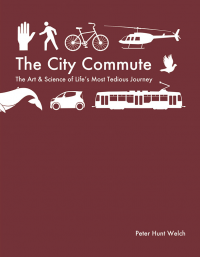 The City Commute: The Art & Science of Life's Most Tedious Journey
Genre: Advice & How To, General Nonfiction
The City Commute: The Art & Science of Life's Most Tedious Journey
Genre: Advice & How To, General Nonfiction
